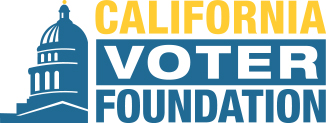Excerpt:
GOP recall candidate Larry Elder recently suggested — without evidence — that there are concerns about the security of a California voting program, one that helps people with disabilities cast their ballot.
On Aug. 19, the conservative talk show host tweeted a Washington Examiner article with the headline, “California voters to be able to download ballots at home for recall election, sparking security concerns.”
But election and disability rights experts say the claim Elder promoted is baseless. What’s more, the article he tweeted doesn’t cite anyone who raised concerns about the specific program.
Given the intense focus on election security, we set out on a fact check.
How Does The Program For Voters With Disabilities Work?
The article points to a California election program called Remote Accessible Vote-By-Mail, or RABVM. It’s designed to help people with disabilities, particularly those with vision and dexterity issues, vote privately and independently. Without the program, these voters often rely on others to help them read and fill out a ballot.
The system is also used by military and overseas voters.
Certain counties have offered RABVM since 2017, while recent legislation required all counties to offer it starting in January 2020.
Registered voters must apply through their county elections office to take part. Once accepted, they receive a unique access code to download a ballot allowing them to read and mark it using their own assistive technology device, according to Jenna Dresner, spokesperson for the California Secretary of State’s Office, which oversees elections in the state.
The program does not allow voters to submit their ballot online, nor does it allow them to print out a blank ballot. Voters using RABVM must print out a single completed ballot and then return it in a vote-by-mail envelope or in-person.
“When [RABVM voters] log into the system with their unique credentials, they are temporarily disconnected from the Internet, so no votes can be submitted online or emailed,” Dresner explained.
“This IS NOT internet voting,” reads a Disability Rights California blog post from July about the program.
- - - - - - - -
Election, Disability Rights Groups Say Program Not A Security Threat
Kim Alexander, president of the advocacy group California Voter Foundation, said she is not aware of any security issues tied to the RAVBM program.
“People may have valid questions about it since it does use the Internet to deliver a ballot to a voter. But it does not use the Internet to return the ballot,” Alexander wrote in an email. “The voter must print out the RAVBM ballot after making his or her selections and then put it in a [vote-by-mail] envelope they have signed just like any other vote-by-mail ballot.”
Paul Spencer, an attorney with Disability Rights California, who specializes in voting issues, said “there aren’t security concerns.”
Spencer said the same safeguards used to prevent fraud with traditional vote-by-mail ballots are used for RABVM. Voters, for example, are required to sign the outside of their ballot envelope. County elections officials then match that signature with the ones on file to verify each ballot.
“They will also check that the person has not voted elsewhere and that this is their first ballot,” Dresner, of the Secretary of State’s Office, added.
She said there’s no record of RAVBM sparking security concerns.
“We are not aware of any investigations or prosecutions related to the use of the RAVBM system,” Dresner said.
Elder’s campaign did not respond to a request for evidence. (Full Story)

